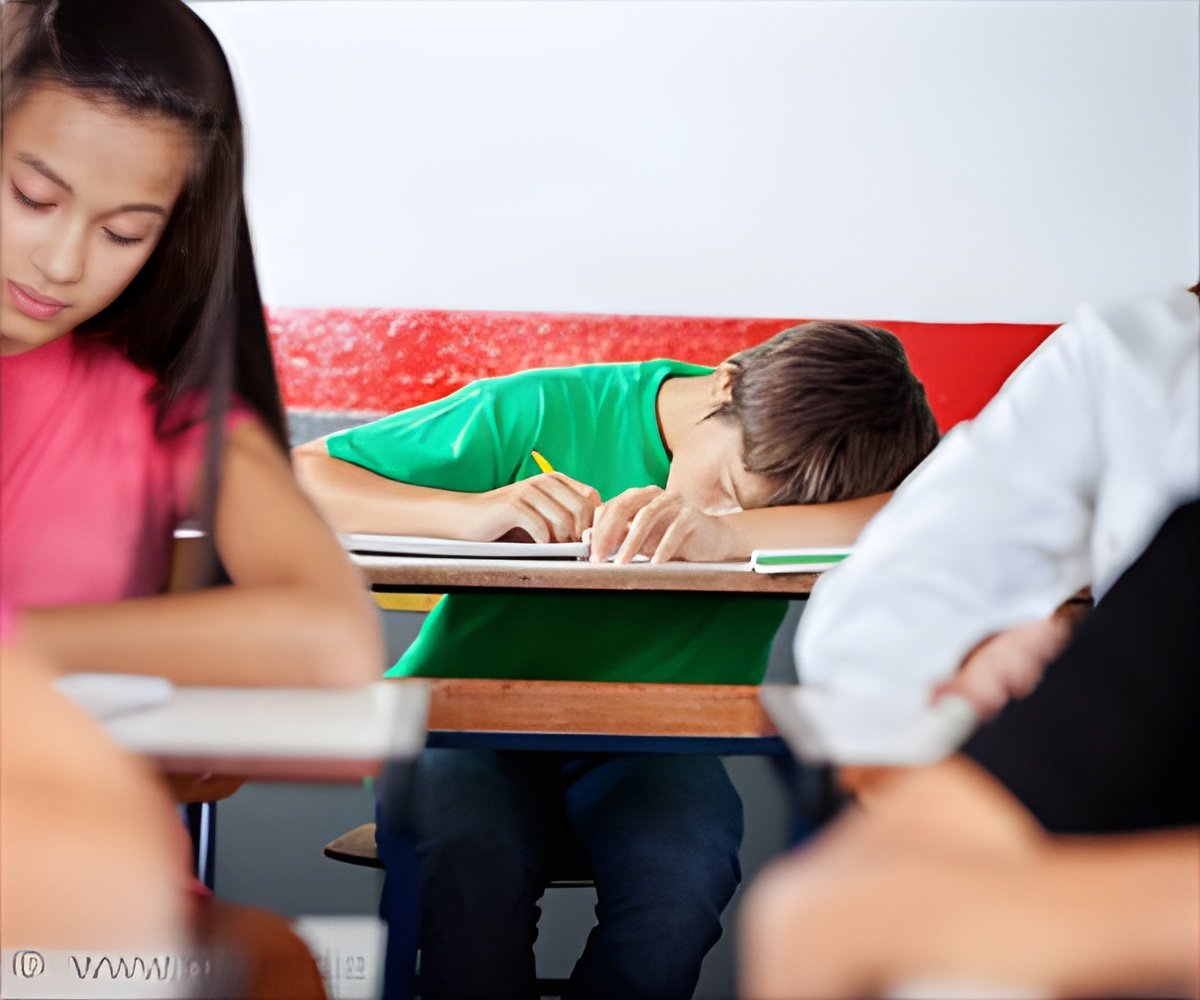Shifting the school start time later in the morning resulted in a boost in attendance, test scores, and grades in math, English, science, and social studies.

While, teenagers are notorious for causing their own sleep deprivation by staying up too late, playing with electronic gadgets, or watching television, the researchers noted that this sleep loss among adolescents is confined primarily to school nights, rather than weekend nights. Students lose up to 2 hours of sleep each night after the start of school. The 2011 National Sleep Foundation poll revealed that only 14% of high school students between the ages of 13 and 18 years reported getting nine or more hours of sleep on weeknights.
Lack of adequate sleep could impair the adolescents’ learning and development. Insufficient sleep time has been linked to significant risks, including higher rates of obesity, depression, anxiety, fatigue, increased rates of suicides, and automobile accidents among adolescents. Chronic sleep deprivation results in an overall lower quality of life. Associate Professor of Psychology Avi Sadeh, a leading authority in this field, has said, “In teens a loss of one hour of sleep is equivalent to the loss of two years of cognitive maturation and development.”
The sleep-wake cycle in adolescents runs from approximately 11 pm to 8 am, while most US high schools schedule classes around 7 am. The sleep hormone melatonin still pressures adolescents to sleep at this time. Early school start time has been identified as a factor contributing to teen sleep deficiency by the National Institutes of Health (NIH) and the American Lung Association of New England.
There is growing evidence that middle and high school students could benefit from a late school schedule by getting more sleep time. Previous studies from the University of Minnesota’s Center for Applied Research and Educational Improvement have revealed that shifting the school start time later in the morning resulted in a boost in attendance, test scores, and grades in math, English, science, and social studies. Schools also noted a decrease in tardiness, substance abuse, and symptoms of depression among the students. There was a dramatic drop in teen car crashes.
While the role of parents in ensuring that their children get enough rest cannot be ruled out, it must be noted that schools also play an important role in students’ daily schedules.
For the first time, the federal CDC is urging education policymakers to start middle and high school classes later in the morning. The idea is to ensure that adolescents get sufficient sleep so that they can thrive both physically and academically.
Lead author Anne Wheaton, an epidemiologist in the CDC’s Division of Population Health, while explaining the importance of sleep said, “Getting enough sleep is important for students’ health, safety, and academic performance. Early school start times, however, are preventing many adolescents from getting the sleep they need. The CDC report suggests that at least 75% of public schools start earlier than 8.30 am.”
The researchers strongly recommend schools to start at a later time, but also warn that other factors must also be addressed to have a significant effect. The study urged health care professionals, especially those working in schools, to raise awareness of the importance of adequate sleep. They recommended that pediatricians should take an active approach by supporting and educating families on healthy sleeping habits. They also encouraged parental involvement in setting bedtimes and supervising sleep practices. Parents should ensure reasonable bedtimes, impose limits on the use of technology, and encourage physical activity in children to help them get the sleep they need.
The study is published in Pediatrics.
Reference:
1. http://www.socsd.org/pdfs/schoolstarttimes.pdfSource-Medindia















